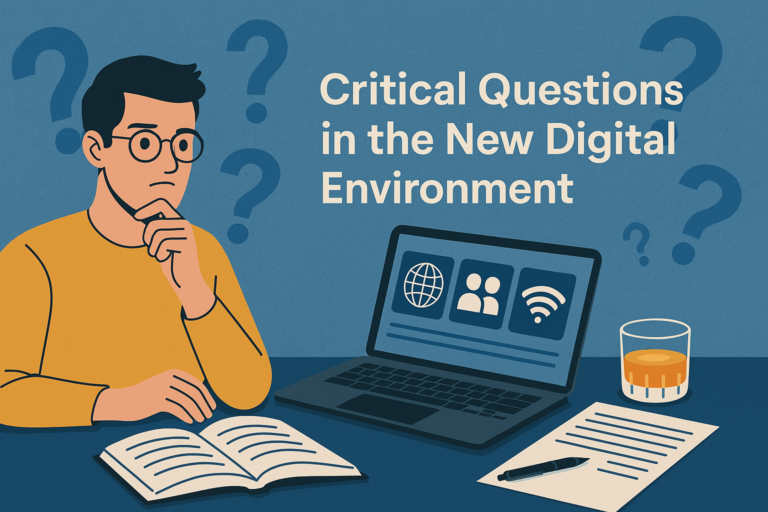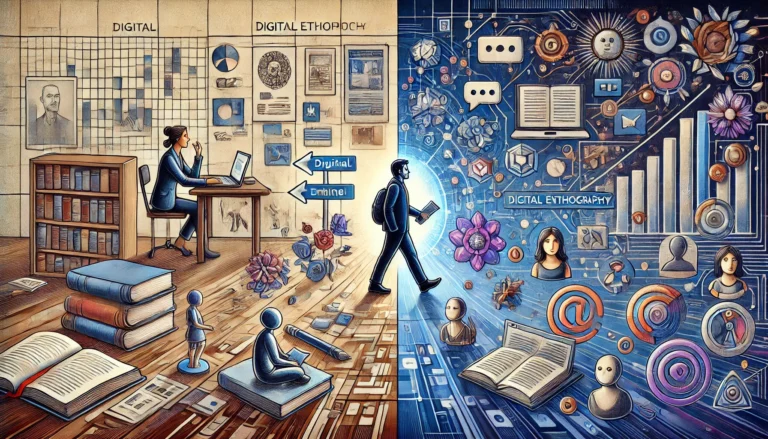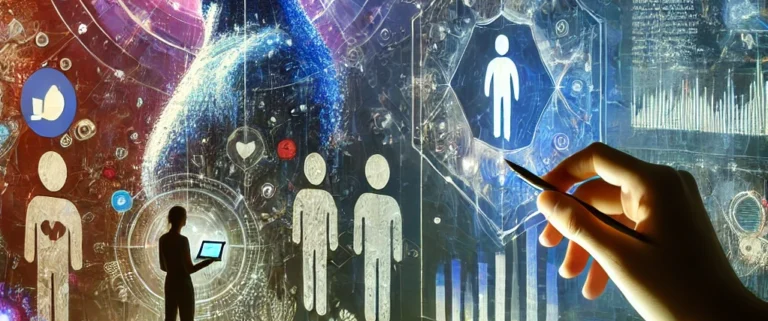This week’s seminar felt like an intellectual expedition—a journey not just through theory, but also through our collective questions about the limits of digital and physical systems that we engage both as researchers and users. As we gathered to explore digital ethnography, our discussions wove together multiple strands of thought, from the intricate workings of algorithms to the politics and even tabloid matters regarding digital platform owners such as E. Musk. Drawing on rich theoretical perspectives, we began to see these elements not as isolated technical phenomena but as vibrant parts of our shared daily practices and sociocultural landscape.
Our collective goal is to establish a reflecting archive of these discussions—a domain where theory and practice converge. As the discussion leader for this week, I am composing this blog post to summarize our previous talks and offer an overview of the ongoing discourse, demonstrating our commitment to collaborative intellectual engagement.
Overview of Discussions
Our previous discussions spanned several critical themes: questioning whether qualitative research can retain its value in a world increasingly dominated by data-centric, quantitative methods, and challenging the notion that scientific validity relies solely on objectivity. We examined how digital identities are shaped by power dynamics on social media, drawing on Goffman’s backstage theory to probe why individuals adopt multiple or anonymous personas, and considered how platforms such as dating apps further mediate our social connections.Our dialogues also ventured into the post-human era, debating whether emerging technologies like AI and VR diminish human agency, while invoking Foucault’s ideas about the fluidity of perception. Alongside these debates, we reflected on methodological challenges such as verifying authenticity online, coping with the ephemeral nature of digital movements, and the “tech-magic paradox” that likens advanced algorithms to mystical forces. Our discussions highlighted that digital ethnography is an embodied and transformative process, wherein the researcher’s active engagement in both digital and physical realms generates insights into power, identity, and technology, while simultaneously reshaping the researcher’s own identity.
Theoretical Tensions: Algorithms as Culture, Platforms as Politics, and Infrastructures as Social Systems
One of the core segments of this week’s seminar revolved around three interrelated themes:
- Algorithms as Culture:
We explored the notion that algorithms are not merely cold, mechanical formulas but active components of culture. By treating them as heterogeneous, culturally embedded practices, we learned to appreciate how algorithms, like water in a river, flow and change with the practices of those who interact with them. This perspective challenges the strict technical definition and instead invites us to see algorithms as part of a broader cultural narrative—a tapestry woven from collective human practices.
- Platforms as Discursive Constructs:
The discussion moved to the idea that platforms are far more than digital spaces. They are dynamic constructs that frame our digital interactions, obscuring power dynamics even as they facilitate creativity and connection. Drawing on Gillespie’s work, we considered how platforms like YouTube and Facebook position themselves as neutral intermediaries while subtly shaping public discourse through design and policy decisions.
- Infrastructures as Politically Charged Systems:
Finally, we examined infrastructures—those often invisible networks that support our connectivity. Unlike traditional infrastructures that are seen as stable and neutral, today’s digital infrastructures are increasingly “platformized.” They reveal the tension between universal access and the political economy of privatization, inviting us to question how historical ideals of public service intersect with contemporary market dynamics under neoliberal ideologies.
It is also highlighted some practical methods for digital ethnography, including “scavenging” for clues from diverse online spaces that reflect the fragmented nature of digital cultures. It stressed the importance of attending to the nuanced “texture of access” in digital interactions to reveal how knowledge circulates beyond obvious channels. Moreover, approaching interviews as immersive fieldwork has demonstrated its ability to connect academic research with the lived experiences of digital existence, highlighting the need to analyze “corporate heteroglossia” and remain aware of irony to perform ethnography effectively.
Looking Ahead
This week’s seminar has left us with both a richer theoretical framework and a set of practical methodological tips. As we move forward, our discussions will continue to unravel the complex interplay between technology and culture. Our collective archive—captured through these blog posts—will serve as a testament to our ongoing journey, a journey that challenges us to rethink the familiar and embrace the transformative potential of digital ethnography.
I am excited to see the progress of these discussions and suggest all participants to contemplate these ideas in anticipation of our forthcoming sessions. Let us continue in questioning, investigating, and interacting with the evolving realm of digital culture collaboratively.


